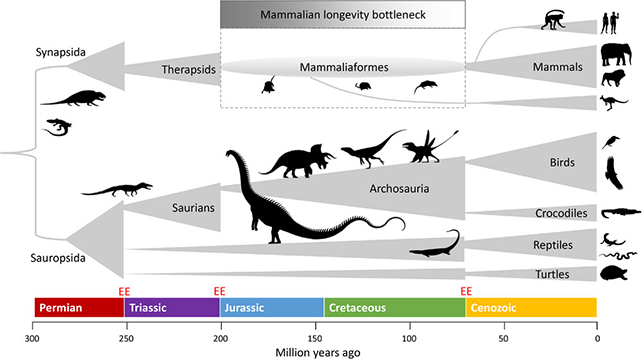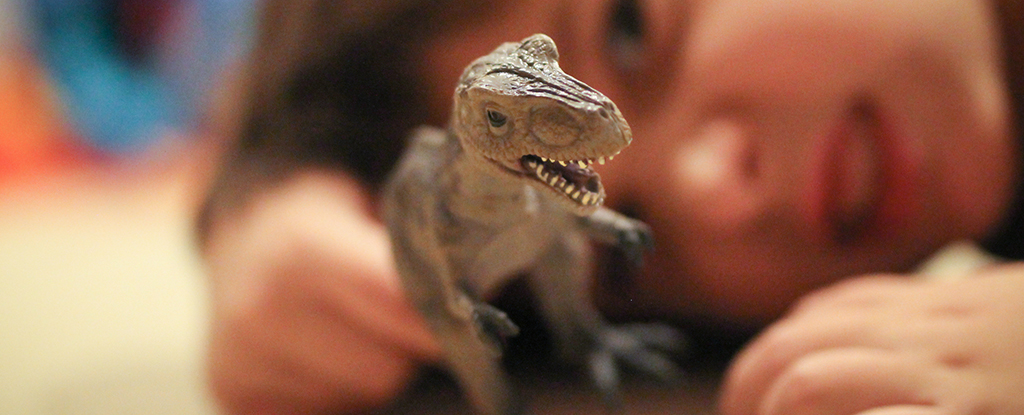Products You May Like
There’s a marked difference between how quickly mammals (including ourselves) age and how quickly many species of reptiles and amphibians do.
This discrepancy, one scientist proposes, could be due to the dominance of dinosaurs millions of years ago, during a critical period of mammalian history.
Microbiologist João Pedro de Magalhães from the University of Birmingham in the UK describes his “longevity bottleneck” hypothesis in a newly published paper.
Here’s the thinking: when dinosaurs ruled Earth, it was necessary for the much smaller mammals to be able to reproduce quickly in order to survive, which means the genes for longer lifespans may have been discarded as evolution progressed.
“Some of the earliest mammals were forced to live towards the bottom of the food chain, and have likely spent 100 million years during the age of the dinosaurs evolving to survive through rapid reproduction,” says de Magalhães.
“That long period of evolutionary pressure has, I propose, an impact on the way that we humans age.”

The published research notes that our very ancient ancestors in the eutherian mammal lineage appear to have lost certain enzymes around the time of the dinosaurs – enzymes that repair damage caused by ultraviolet light.
Interestingly, even marsupials and monotremes lack at least one of the three UV-repair enzymes, known as photolyases. Whether this is related to their own relatively shortened lifespans in any way, it’s hard to say.
One possibility is that the loss was down to mammals becoming more nocturnal to stay safer, and millions of years later, we’re making up for it with sun cream. It’s an example of a repair and restoration mechanism that we would otherwise have had.
There are other signs too. Take teeth, for example: certain reptiles, including alligators, can keep on growing teeth all through their lives. Human beings, obviously, cannot – again, perhaps a result of genetic selection dating back hundreds of millennia.
“We see examples in the animal world of truly remarkable repair and regeneration,” says de Magalhães. “That genetic information would have been unnecessary for early mammals that were lucky to not end up as T. rex food.”
Of course a number of mammals do celebrate triple-digit birthdays, including whales and us humans. Whether we do so under the constraints imposed by our shorter-lived ancestors, or have somehow evolved to not be affected by them, could be the target of future research.
Understanding more about the factors behind aging is always useful in fighting age-related diseases, including dementia and stroke, and the genetics behind the “longevity bottleneck” might have more to teach us here.
“While just an hypothesis at the moment, there are lots of intriguing angles to take this, including the prospect that cancer is more frequent in mammals than other species due to the rapid aging process,” says de Magalhães.
The research has been published in BioEssays.
